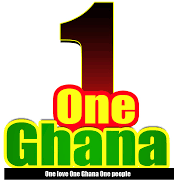In a bid to bolster the fight against corruption, Michael Boadi, the Fundraising Manager at Ghana Integrity Initiative (GII), the local chapter of Transparency International, has emphasised the necessity of regulating political campaign financing.
“We cannot successfully combat corruption without controlling the financing of political parties. We must establish mechanisms to regulate political campaign finance,” stated Boadi during a session at the Ghana News Agency’s Boardroom Dialogue in the Tema Regional Office.
The event centered around the theme, “The fight against corruption in the Fourth Republic: A Mirage or Reality?”
Boadi pointed out that political campaign financing had become a significant catalyst for corruption, often leading to misappropriation of the country’s abundant resources if left unchecked.
“The situation is becoming increasingly perilous. According to research by the Centre for Democratic Development-Ghana, winning a parliamentary seat costs approximately US$300,000.00, a figure that continues to rise,” he noted.
Questioning the source of substantial funds required for political campaigns, Mr Boadi raised concerns over transparency and accountability.
“If a parliamentary seat in a smaller constituency demands $300,000.00, one must ponder the source of even larger sums spent by presidential candidates,” he commented.
Boadi stressed the urgency of disclosing the origins of funding for political parties and their candidates at both the presidential and parliamentary levels.
He warned that the failure to scrutinize funding sources could potentially lead to criminal entities such as money launderers, drug traffickers, and terrorists wielding influence over the country’s political landscape.
The efficacy of anti-corruption efforts, Michael Boadi argued, hinges on addressing these challenges and ensuring greater transparency.
He cautioned against the politicisation of corruption investigations, which has, in some instances, impeded the functionality of relevant institutions and dampened public interest in their proceedings.
To remedy this, Boadi suggested that corruption investigations be conducted transparently and without external interference. Such an approach, he believed, would encourage citizens to actively participate in the fight against corruption in Ghana.




